Franz Beckenbauer
Franz Beckenbauer
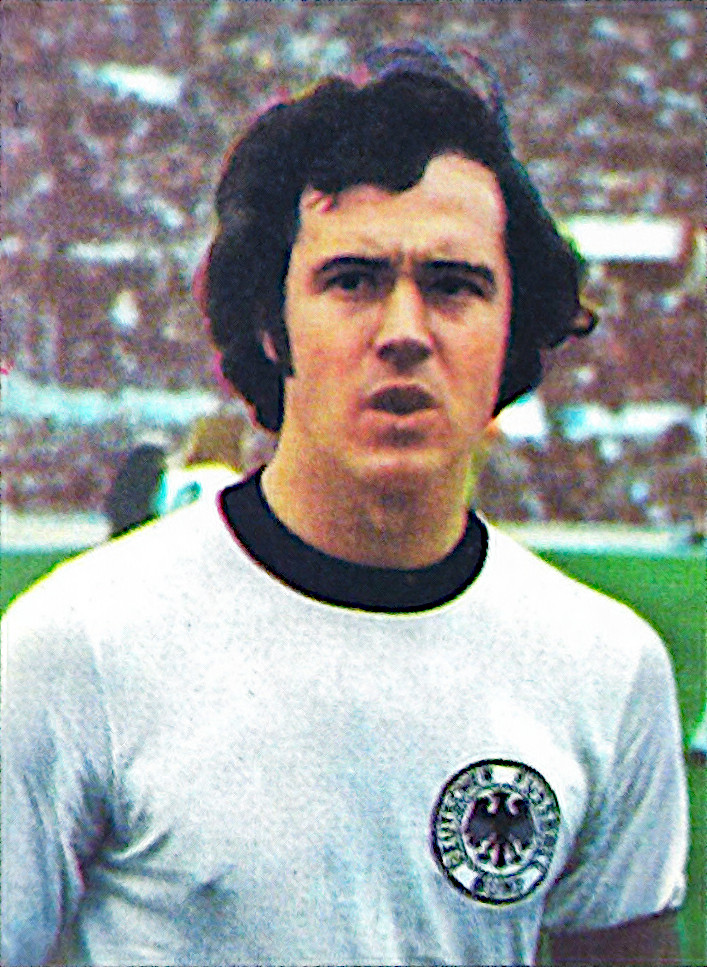
Franz Beckenbauer, twice honored as European Footballer of the Year, represented West Germany 103 times, participating in three FIFA World Cups and two European Championships. He stands among a select group of individuals, including Brazil's Mário Zagallo and France's Didier Deschamps, who have triumphed in the World Cup both as players and managers. Beckenbauer captained his team to victory in 1974 and later secured another World Cup win as a manager in 1990. He holds the distinction of being the first captain to claim the World Cup, European Championship, and European Cup titles. Throughout his illustrious career, Beckenbauer earned numerous accolades, including selection to the World Team of the 20th Century, the FIFA World Cup Dream Team, the Ballon d'Or Dream Team, and the IFFHS All-time Men's Dream Team. In 2004, he was further honored by inclusion in the FIFA 100 list, recognizing him as one of the greatest living players in the world.
Franz Beckenbauer enjoyed significant success at the club level with Bayern Munich. He secured the European Cup Winners' Cup in 1967 and achieved the remarkable feat of winning three consecutive European Cups from 1974 to 1976. Notably, he became the first player to lead his club to three European Cup victories as captain. Beckenbauer later assumed managerial and presidential roles at Bayern Munich, further solidifying his legacy with the club. Additionally, he had stints with the New York Cosmos before being honored with induction into the US National Soccer Hall of Fame.
Franz Beckenbauer played a pivotal role in leading Germany's bid to host the 2006 FIFA World Cup, serving as the chair of the organizing committee. He also contributed as a pundit for Sky Germany and held a columnist position at the tabloid Bild for 34 years, until 2016. However, starting in August 2016, Beckenbauer faced investigation for allegations related to fraud and money laundering associated with the 2006 World Cup. The investigation concluded without a verdict in 2020 due to the expiration of the statute of limitations.
Franz Beckenbauer was born in Munich, amidst the post-World War II devastation, as the second son of postal worker Franz Beckenbauer, Sr., and his wife Antonie (née Hupfauf). He spent his formative years in the working-class neighborhood of Giesing. According to his brother Walter, their mother Antonie took charge of their education. She instilled in them the belief that only a person's character matters, irrespective of skin color, religion, sexual orientation, or other factors. Beckenbauer himself often reminisced about his childhood:
I was brought up as a Catholic from a young age, which held particular significance for my mother. She was a devout believer and continued to attend church regularly into her later years. She imparted many valuable life lessons to me - emphasizing the importance of values and certain character traits, as well as faith. As a child, I served as an altar boy in our parish in Munich-Obergiesing, and later I became involved in the Catholic Youth. However, at some point, football took precedence, and I found myself neglecting my church duties a bit.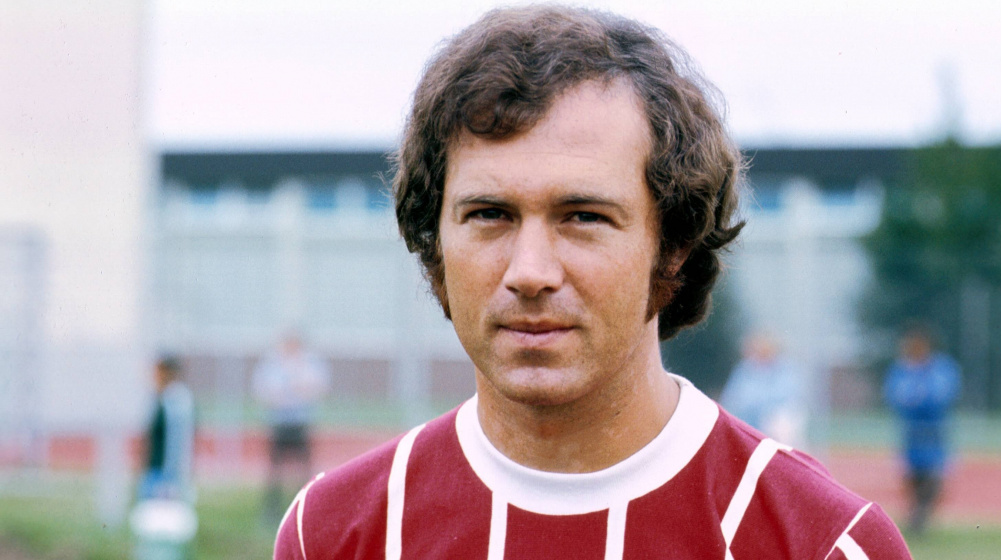
Despite his father's skepticism about the game, Franz Beckenbauer started playing football at the age of nine with the youth team of SC Munich '06 in 1954.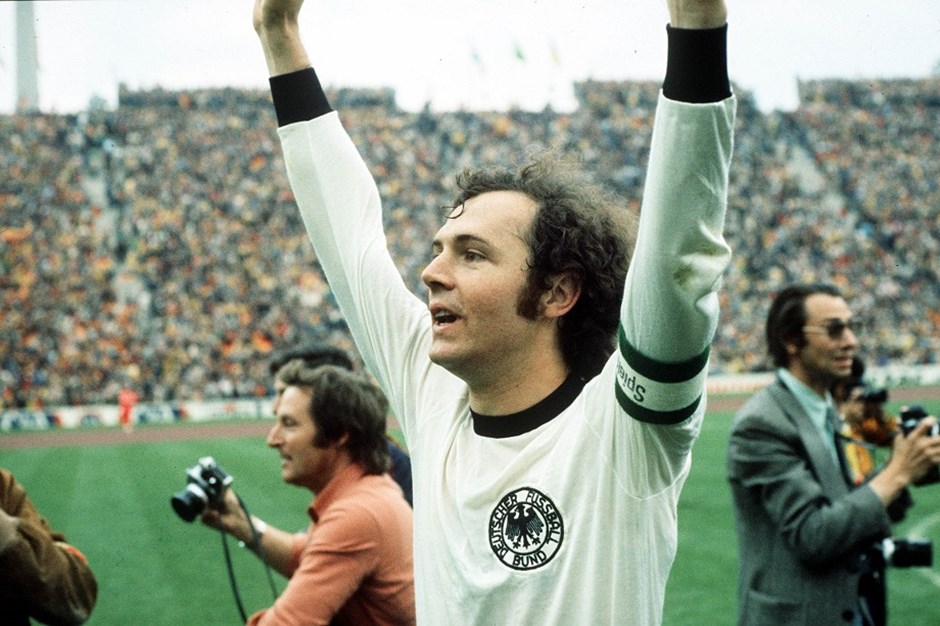
Originally aspiring to be a center forward, Beckenbauer idolized 1954 FIFA World Cup winner Fritz Walter and supported the local side 1860 Munich, the dominant team in the city at the time, despite their relegation from the top league, the Oberliga Süd, in the 1950s. "It was always my dream to play for them," he later confirmed.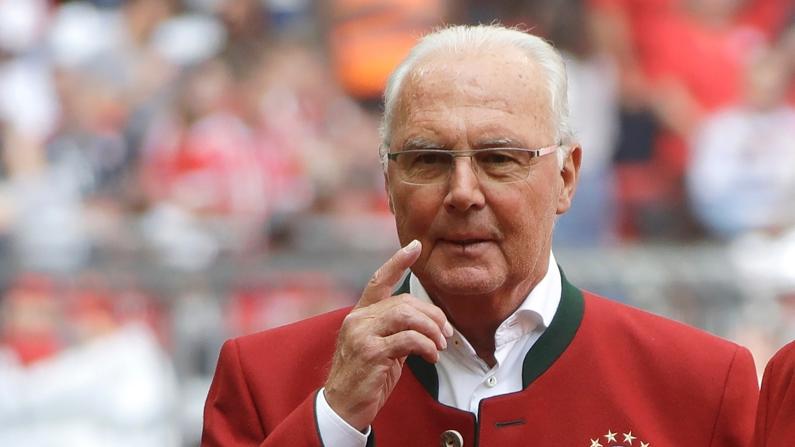
However, Beckenbauer joined the Bayern Munich youth team in 1959, rather than his favorite team, 1860 Munich, due to a contentious Under-14 youth tournament in nearby Neubiberg. Beckenbauer and his teammates from SC Munich '06 were aware that their club lacked the financial means to continue running its youth sides. They had planned to join 1860 Munich as a group after the tournament. However, fate intervened when SC Munich and 1860 Munich faced off in the final, and tensions escalated during the match, leading to a physical altercation between Beckenbauer and the opposing center-half. The animosity that arose from this incident influenced Beckenbauer and his teammates to join Bayern's youth side instead of the team they had recently clashed with.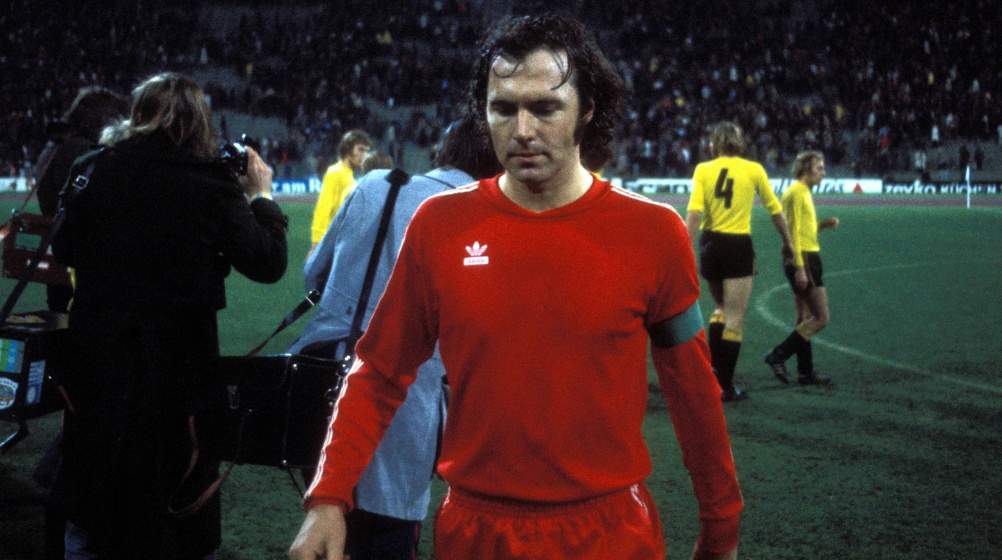
Franz Beckenbauer made his debut with Bayern Munich in a Bundesliga promotion play-off match on the left wing against FC St. Pauli on June 6, 1964. During his first season in the Regionalliga Süd (the "Regional League South," then the second level in Germany) in 1964–65, the team won the league title and was eventually promoted to the Bundesliga, the top tier of German football.
Bayern Munich quickly emerged as a formidable force in the new German league, securing the German Cup in the 1966–67 season and experiencing European success in the Cup Winners' Cup in 1967. Franz Beckenbauer assumed the role of team captain for the 1968–69 season and guided his club to their first league title. Around this period, Beckenbauer started experimenting with the sweeper (libero) position, refining the role into a new form and establishing himself as one of the greatest practitioners of the attacking sweeper game.
The nickname "der Kaiser" ('the Emperor') was bestowed upon Beckenbauer by fans and the media starting in 1968. An anecdote often recounted, even by Beckenbauer himself, claims to explain its origin: during a friendly match of Bayern Munich in Vienna, Austria, Beckenbauer posed for a photo session next to a bust of the former Austrian emperor Franz Joseph I. Subsequently, the media began referring to him as Fußball-Kaiser ('football emperor'), which eventually shortened to der Kaiser. However, according to a report in the German newspaper Welt am Sonntag, this explanation is deemed untrue, though widely popular. The report suggests that Beckenbauer earned the nickname during the cup final on 14 June 1969 when he fouled his opponent, Reinhard Libuda from Schalke 04. Despite the fans' disapproval, Beckenbauer defiantly took the ball to the opposing side of the field, where he skillfully controlled it in front of the disgruntled spectators for half a minute. Since Libuda was commonly referred to as the König von Westfalen ('king of Westphalia'), the press sought an even grander epithet, leading to the invention of der Kaiser.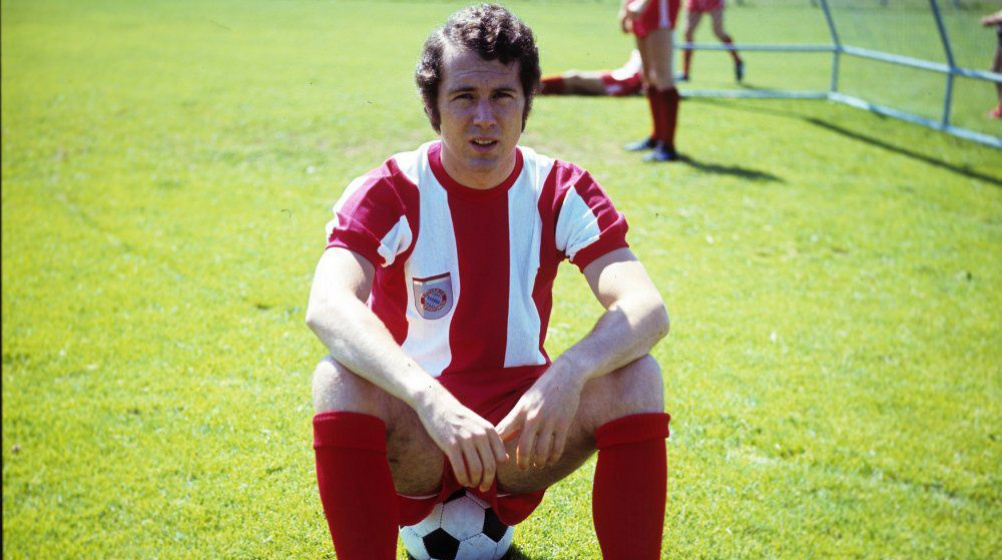
References
- "Der Kaiser, the brains behind Germany". FIFA. Archived from the original on 9 April 2016. Retrieved 24 July 2009.
- a b c d Lawton, James (3 June 2006). "Franz Beckenbauer: The Kaiser". The Independent. UK. Archived from the original on 27 February 2010. Retrieved 24 July 2009.
- ^ Chakraborty, Sushan (21 December 2022). "9 legends who have won the FIFA World Cup, UEFA Champions League, and Ballon d'Or". www.sportskeeda.com. Retrieved 8 January 2024.
- a b "Franz Beckenbauer bio". ifhof.com – International Football Hall of Fame. Archived from the original on 20 May 2012. Retrieved 29 March 2008.
- ^ West, Jenna (15 July 2018). "Didier Deschamps Becomes Third to Win World Cup as Player and Manager". Sports Illustrated. Archived from the original on 20 May 2019. Retrieved 16 July 2018.
- ^ "Pele's list of the greatest". BBC Sport. 4 March 2004. Archived from the original on 19 October 2018. Retrieved 16 November 2013.
a b Leme de Arruda, Marcelo (24 July 2014). "World All-Time Teams". RSSSF. Archived from the original on 8 February 2011. Retrieved 27 July 2014.






































